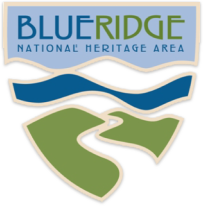Whether it’s the “Happiest Girl in the Whole USA,” or “Killing Me Softly with His Song,” North Carolina women have made it big in the music world. Across genres of country, folk, bluegrass, pop, rhythm and blues, or gospel, female singers from North Carolina have won awards and respect worldwide. Only a few of the many are highlighted here.
Mount Airy’s Donna Fargo’s recording, “Happiest Girl in the Whole USA” was one of the hits that kept her in the Country Top 10 throughout the 1970s. Unlike many of her contemporaries, she wrote some of her songs, and in recent times wrote poetry and greeting cards. Roberta Flack of Asheville shared smooth jazz-based stylings that kept “Killing Me Softly with His Song” on top of the charts for five weeks in 1973, and earned three Grammys, including Record and Song of the Year. Flack continues to perform today.
North Carolina women’s involvement with the music business goes back decades. In 1924, the Columbia Phonograph Company of New York recorded 12 songs of banjo player Samantha Biddix Bumgarner. She was the first Appalachian banjo player and the first female country performer to make a commercial record. Some of the women can trace the roots of their traditional music centuries back. Mary Jane Queen, of Jackson County, traced her lineage to early settlers from Ulster, Ireland. All of her family sang or played guitar or fiddle. Bessie Eldridge of Ashe County, born in 1913, also carries on traditional songs she has heard all her life.
Women in blues also made themselves heard. Piedmont blues guitarist Etta Baker of Caldwell County influenced many musicians. She recorded sporadically for more than 40 years, her last album in 1991. Her songs “Railroad Bill” and “One Dime Blues” are standards of the Piedmont blues sound. But it was a move from Belhaven, N.C. to Brooklyn, N.Y. that helped put Eva Narcussus Boyd “Little Eva” on the map. She was a baby sitter for the songwriting team of Carole King and Gerry Goffin and recorded their song “Loco-motion” as a demo. It became a number one pop hit in 1962, and other hits followed.
Some other women moved to the state and made a mark on the music world. Singer-songwriter Emmylou Harris is a native of Birmingham, Ala., and attended UNC-Greensboro. While there, she began performing in coffee houses and clubs and released several country albums in the 1970s. In 1980, she won a Grammy for “Roses in the Snow.” Singer-songwriter Tift Merritt moved to North Carolina from Texas at an early age, and got her start in Triangle clubs playing with bands like Two Dollar Pistol. She won a songwriting contest at Merlefest in 2000. Among her recordings is the Grammy-nominated “Tambourine.”
Singer-composer-pianist Nina Simone, of Tryon, performed jazz, rhythm and blues, and protest songs in the 1960s. Her rendition of George Gershwin’s “I Loves You Porky” was a top 40 hit. Simone made records into the 1990s. Fantasia Barrino, of High Point, won the third season of American Idol in 2004, singing “Summertime” from Gershwin’s Porky and Bess. In 2006, she received four Grammy nominations and also has starred on Broadway.
One of the most awarded of North Carolina’s musical mavens is gospel singer Shirley Caesar, of Durham. She sang with the group the Caravans before launching her solo career in 1966. Known as the First Lady of Gospel, she has been recognized with 11 Grammy awards, 17 Dove awards, 12 Stellar Awards, and was inducted into the Gospel Hall of Fame in 2000. Her best known songs include “No Charge” and “Don’t Drive Your Mama Away.” She has appeared on Broadway in Born to Sing and Mama, I Want to Sing. She serves as pastor of a Raleigh church in addition to performing.
For a more on North Carolina’s women in music, including some fantastic audio, visit ncdcr.gov/WomenInMusic. The North Carolina Arts Council also recognizes traditional musicians with the North Carolina Heritage Award, and guidebooks including “Blue Ridge Music Trails of North Carolina” and “African American Music Trails of Eastern North Carolina.” The Arts Council is a division of the N.C. Department of Cultural Resources.


